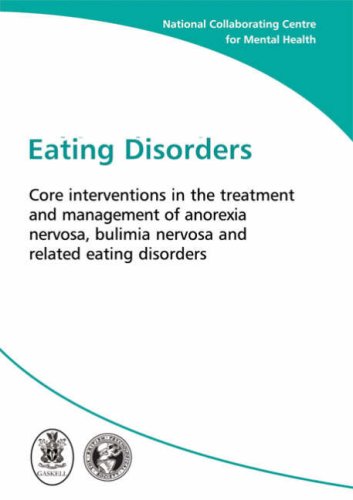
Eating Disorders
Publisher: British Psychological Society 2004
ISBN/ASIN: 1854333984
ISBN-13: 9781854333988
Number of pages: 261
Description:
This guideline has been developed to advise on the identification, treatment and management of the eating disorders anorexia nervosa, bulimia nervosa and related conditions. The guideline recommendations have been developed by a multidisciplinary group of health care professionals, patients and their representatives, and guideline methodologists after careful consideration of the best available evidence.
Download or read it online for free here:
Download link
(1.1MB, PDF)
Similar books
 Download Of Psychiatry
Download Of Psychiatryby Saxby Pridmore - University of Tasmania
The DOP (Download Of Psychiatry) is freely accessible information about mental disorders and psychiatry, at about medical student level. It can be used as an alternative textbook, and may be of interest to a wider audience.
(23643 views)
 Mental Health: Culture, Race, and Ethnicity
Mental Health: Culture, Race, and Ethnicity- U.S. Public Health Service
This book documents the existence of striking disparities for minorities in mental health services and underlying knowledge base. Racial and ethnic minorities have less access to mental health services. They are less likely to receive needed care.
(11872 views)
 Violence and Mental Health
Violence and Mental Health- The National Academies Press
Experts examine experience, evidence and practice at the intersection of mental health and violence. They explore how violence impacts mental health and how mental health influences violence and discuss approaches to improve research in both domains.
(6358 views)
 Family Involved Psychosocial Treatments for Adult Mental Health Conditions
Family Involved Psychosocial Treatments for Adult Mental Health Conditionsby Laura Meis, et al. - Department of Veterans Affairs
We conducted a systematic review of the published evidence evaluating if (and which) family involved treatments improve patient outcomes (i.e., efficacy) and if (and which) family involved treatments are superior to alternative interventions.
(10070 views)